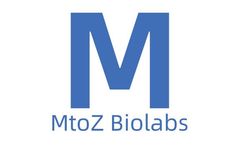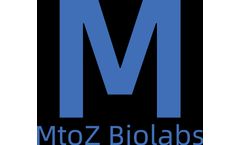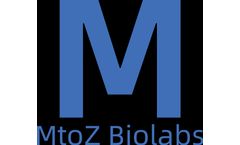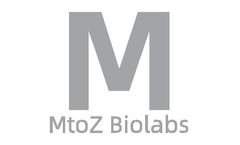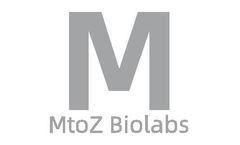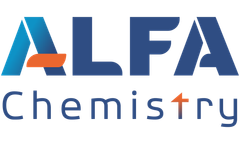Drug Delivery Applications Articles & Analysis: Older
38 articles found
Pharmaceutical Development: These cell lines are essential in the drug discovery pipeline, allowing for high-throughput screening and functional assays to evaluate drug efficacy and safety. Biotechnology Applications: Beyond disease research, knockin technologies are employed to create cell lines producing therapeutic proteins, monoclonal ...
Alfa Cytology has introduced its advanced drug development services for brain tumors. Alfa Cytology, celebrated for its cutting-edge biotech solutions and extensive tumor research expertise, has recently introduced brain tumor drug development services, designed to empower researchers in understanding the intricacies and unique challenges associated with brain ...
Antibody drugs are a type of drugs that treat diseases through artificially synthesized antibodies, which bind specifically to target molecules for therapeutic purposes. Common types of antibody drugs include monoclonal antibodies, artificially synthesized antibody fragments, immunotoxins, and antibody-drug conjugates, etc. Antibody drugs have shown significant therapeutic effects in the ...
Glycosylation impurities are a type of chemical commonly encountered in biochemical, medical, and pharmaceutical chemistry research. The presence of these impurities can affect the efficacy, safety, and stability of drugs. Therefore, the detection and analysis of glycosylation impurities are crucial in ensuring the quality and therapeutic effectiveness of pharmaceutical products.What are ...
Antibodies are an essential part of our immune system, capable of recognizing foreign molecules (antigens) and helping to eliminate them. Antibodies have a high degree of target specificity, affinity, and safety, and have been widely used in the treatment, diagnosis, and prevention of many major diseases. They are currently a focus in new drug development. The design of antibody drugs is a ...
Circular Dichroism (CD) uses the absorption properties of optically active substances to analyze the molecular structure of drugs. It has very valuable applications in drug analysis, including:1. ...
Antibody drugs, particularly monoclonal antibodies (mAb), play a critical role in the treatment of many diseases, especially in the treatment of cancer and immunological disorders. To ensure the effectiveness and safety of these antibody drugs, it is necessary to perform activity testing.Definition of Antibody ActivityThe activity of an antibody drug usually refers to its ability to bind to the ...
They also have a high degree of stability and solubility, making them suitable for various routes of administration. One of the first applications of nanobodies in drug delivery was the development of targeted drug delivery systems. ...
Introduction Cellular mechanisms driving cell death play a crucial role in various physiological and pathological processes. One such mechanism is apoptosis, a tightly regulated process vital for maintaining tissue homeostasis, development, and immune response. Apoptosis assays are valuable tools used by researchers to study the intricate details of this cellular event. This blog aims to ...
For example, through carboxylic acid functional groups, PEGs can covalently bind to drugs, targeting ligands, or other biologically active molecules, thus enabling drug-targeted delivery and controlled release. In addition, carboxylic acid PEGs can be involved in regulating interactions with cells, such as fusion with cell membranes and cellular ...
Microneedles have gained significant attention in recent years for their potential in drug delivery applications. These tiny needles, typically measuring less than 1 mm in length, can painlessly penetrate the skin and deliver drugs in a precise and controlled manner. ...
In this article, we will explore different types of nanoparticle development that are revolutionizing drug delivery systems. Polymer Nanoparticles for Drug Delivery Polymer nanoparticles are a popular choice for drug delivery systems due to their biocompatibility and versatility. ...
Introduction In the world of molecular interactions, understanding the forces that drive binding events is crucial for advancing scientific research and developing new therapies. One powerful technique that has revolutionized the study of molecular interactions is Microscale Thermophoresis (MST). In this blog post, we will delve into the world of microscale thermophoresis, exploring its ...
This makes liposomes more advantageous in terms of preparation and long-term storage. Differences in Application Areas Micelles: Micelles are commonly used in cosmetics, drug delivery systems, and biochemical research. They are suitable for applications requiring rapid release of drugs or active ingredients. ...
The platform's folate-selective delivery capability enabled precise targeting of specific cell lines, offering superior biocompatibility and significant clinical translation potential across multiple biomedical applications. ...
This approach provides stronger and longer-lasting fluorescence but may affect the stability and behavior of the liposomes. Applications of fluorescent liposomes Fluorescent liposomes are proving valuable in various research areas, including: Cancer research: Studying tumor targeting and drug delivery strategies for improved cancer therapy. ...
Applications of Protein Engineering Protein engineering is a versatile tool with a wide range of applications, including: Drug Discovery and Development: Protein engineering is being used to design novel therapeutic proteins, such as enzymes, antibodies, and scaffolds, for the treatment of various diseases. ...
Microneedle patch technologies have revolutionized the field of drug delivery, offering a wide range of advantages over traditional methods. ...
Polymeric microspheres, including poly(lactic acid-glycolic acid) copolymers (PLGA), poly(lactic acid) (PLA) and polycaprolactone (PCL) microspheres, are highly biocompatible and are widely used to develop particulate drug delivery systems. By introducing a variety of small molecules such as coordinating groups, hormones, proteins, peptides, nucleotides, enzymes, ...
Introduction of Drug Affinity Responsive Target Stability (DARTS) Drug target protein identification is an important step in the research and development of new drugs. Drug Affinity Response Target Stability (DARTS) is a technique that can rapidly and directly identify potential target proteins of small molecule drugs. That is, it prevents the target protein from being hydrolyzed by proteases ...



